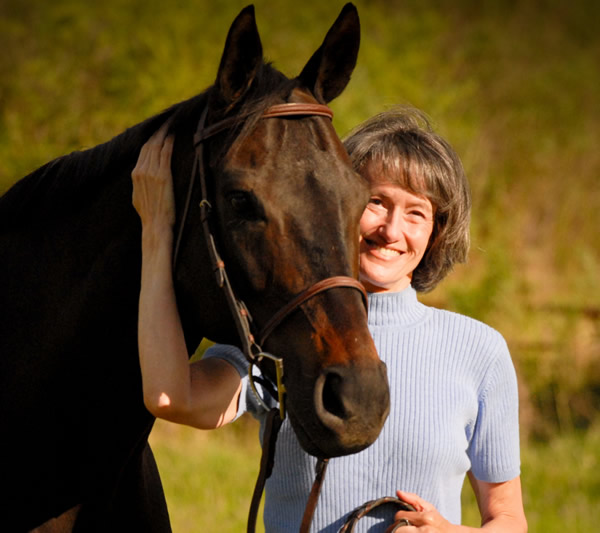TRUE TRAINING 57 - Spring Winds
Grrr…. Need I say more than the title of this post? Spring is so lovely—temps warm up, pastures get green, months of dirt can be washed off—but oh, the wind. Horses don’t like it any more than we do. Why not?
A horse’s primary sensation of the world occurs through smell. She’s a prey animal, so her brain makes her vigilant to anything new or potentially hazardous in the environment. She doesn’t want to become some predator’s dinner, right?
Wind blows scents away. A light wind alters the horse’s knowledge of where a scent comes from. Just a few feet upwind, and she won’t smell a thing even with two amazing equine noses. (Yep, horses have two noses connected to their brains. Check out Chapter 6 in Horse Brain, Human Brain.) Stand a few feet downwind, and scents are concentrated as if the object of origin is much closer than it really is.
But in the spring, at least where I ride, wind isn’t light. It blows hard and loud and strong. It averages around 20 to 25 mph on a regular April day, and often entering into May too. A cross-wind of this magnitude shakes the steel arena fence set in deep concrete. Beyond these normal occurrences, there are what the weather forecaster euphemistically calls “windy” days. On these days, the standard 20 to 25 mph gale increases to 40 mph or more. And they're even worse in other parts of the country. Horses can’t smell a thing in this weather. Their primary sense is overcome.
Horses discriminate touch very accurately, too. When you turn toward the wind, it pushes on you. And on your horse! She can feel that blast of air pressure in her face and chest as she turns the corner, just like you can. But riding with the direction of the wind is just as disconcerting. Now, it’s blowing up her tail, under her back legs, pushing on her hindquarters, throwing her mane and forelock forward into her eyes and ears.
Fortunately, horses have other senses to rely on when smell and touch are impaired. But wind affects those senses, too. Ever try taking or giving a riding lesson in wind? You can’t hear 90% of the words your trainer says, even when she’s destroying her vocal cords permanently by yelling as loudly as possible. Your horse can’t hear above the howling either. (The wind's howling... not the trainer's!) So… goodbye to sense number three as well. Unfortunately, you and your horse can probably hear that arena fence shaking, though, because you’re riding right next to it. Steel shaking in concrete is not a reassuring sound.
Ah, but surely sight will save the day! Hmmm. The primary sense for humans is vision, so we assume it’s equally important and equally sharp to all living beings. But it’s not. Vision ranks about fourth in the order of equine sensory importance, behind smell, touch, and vision’s close third, hearing. What happens when something unsmelled, unfelt, and unheard pops up visually? Yee-haw! Yep, it’s a surprise that causes horses to shy, scoot, or bolt. That’s no fun. And dangerous to boot. Plenty of riders and drivers end up in Urgent Care thanks to horses shying.
Vision also increases wind problems by virtue of uncommon sights and poor visibility. Suddenly, the stationary tree is waving its giant limbs back and forth through the air, almost taunting our four-legged friends. Dust blows sideways, reducing visibility. Any little thing on the ground—a piece of paper, a weed, a styrofoam cup, perish the thought of plastic—will fly along as if animated. In effect, the young horse perceives these items as living objects taking chase. It is only natural and intelligent for her to flee from them.
In the west, wind causes dust devils. A lot of my friends from the east are not familiar with these. They look like little tan mini-tornadoes, spiraling upward in tight circles of dust two or three stories high. True still runs from these visual hazards, though not as quickly as he did at age three.
I ride in just about any weather—heat, cold, snow, rain—but I have almost outgrown the wind. (Lightning is completely OUT, thanks to several highly electrifying experiences.) True dislikes all these impediments. He has gotten calmer with experience and trust in 10 mph wind, but he resists when I try to lead him away from his pasture shelter in anything higher. Unless it’s really bad, we usually go out anyway even if only to the barn for grooming… but we’ll both be happier when calmer days emerge.

